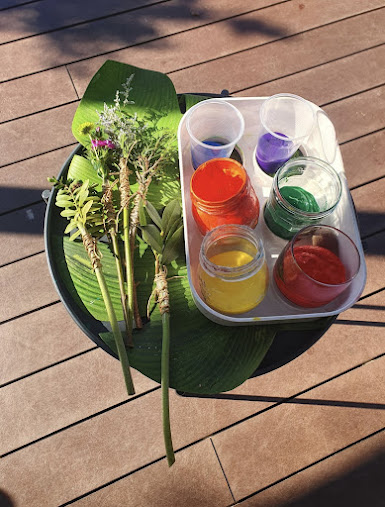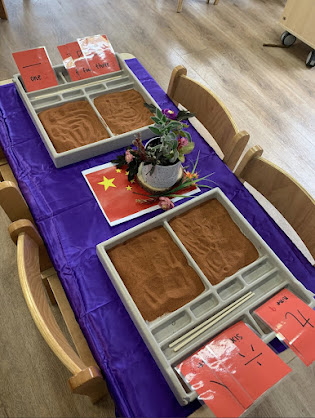I love to integrate exploratory, problem-solving play within my program. This tinkers table is an excellent way to do so. It comprises of old electronics, old mobile phone, an old radio that I have unscrewed and allowed the children to look closely at all the different parts inside, take it apart and (perhaps) put it back together again using screwdrivers, hammers, pliars and similar tools. Thank you to my centre director Jessica for giving me a small budget and allowing me to purchase these tools from our local hardware store. The great thing about this area is that I kept out actual hardware tools and not the toy ones.
Children are curious by nature and by providing them the tools and
materials to explore you will be encouraging them to become ‘tinkerers’
as well as developing their fine motor skills, problem solving abilities
and social skills. Tinkering involves experimenting with authentic tools to help a child understand how things work. Tinkering definitely supports
learning through doing and teaches children valuable lessons by helping
them develop fine motor skills, problem solving abilities and peer
relationships. Tinkering is important because it can help children understand how
things are made, enables children to have focused and unstructured time
to explore and test ideas, and it’s at the heart of invention.

















































